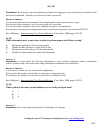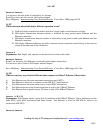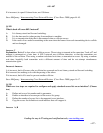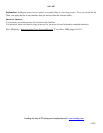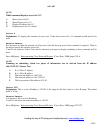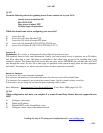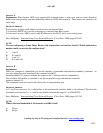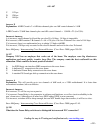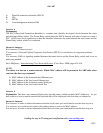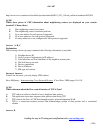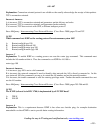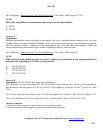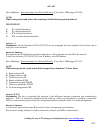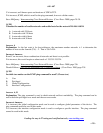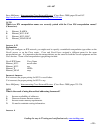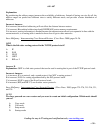
640 - 607
Leading the way in IT testing and certification tools, www.testking.com
- 123 -
A. Data link connection identifier (DLCIs)
B. CNs
C. FECNs
D. Local management interface LMI
Answer: A
Explanation:
The DLCI (Data-Link Connection Identifier) is a number that identifies the logical circuit between the router
and the Frame Relay switch. The Frame Relay switch maps the DLCIs between each pair of routers to create a
PVC. DLCIs have local significance in that the identifier references the point between the local router and the
Frame Relay switch, which it is connected.
Incorrect Answers:
B is incorrect; CN does not exist.
C is incorrect; a Forward Explicit Congestion Notification (FECN) is a notification of congestion problems
occurs.
D is incorrect; LMI is a signaling standard between the router device and the Frame Relay switch, and is not an
addressing method.
Steve McQuerry. Interconnecting Cisco Network Devices. (Cisco Press: 2000) pages 414-416.
Q. 199
You telnet to a host on a remote network. Which MAC address will be present in the ARP table when
you issue the show arp command?
A. MAC address of the destination host Ethernet port.
B. MAC address of the local router Ethernet port
C. MAC address of the destination router Serial port
D. MAC address of the local router Serial Port
Answer: A
Explanation: The show arp command displays the arp table entries (which includes MAC addresses). As you
have telnet to a host on remote network the arp table that will be displayed is the host that you telneted to.
Incorrect Answers:
B is incorrect; in order to obtain information about the local router you would need to use the show arp on it.
C is incorrect; you would need to telnet to the subject router to receive its MAC address.
D is incorrect; in order to obtain information about the local router you would need to use the show arp on it.



